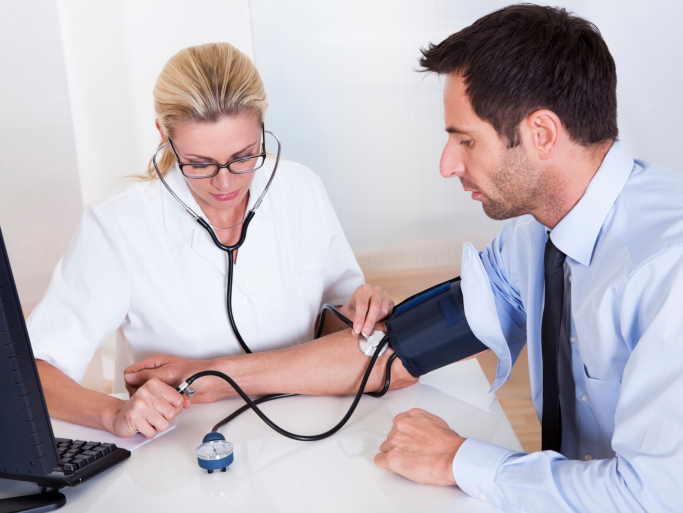What are health screenings, and why do I need them?
Health screenings are medical tests that check your risk for certain diseases and conditions. Getting screened is important—it’s often the first step a person can take toward better health and well-being. From there, once you know your risks, you can take action by making healthy lifestyle changes that can help lower your risks for disease.
What are some types of health screenings?
There are many different types of health screenings available. Some are routine, such as those that test your blood pressure, cholesterol levels, body mass index (BMI), and blood glucose.
Then there are screenings that are more specific to you, and your doctor may recommend that you undergo these screenings based on your age, gender, family history, and other risk factors. Examples of these screenings include tests for bone density, hearing or vision loss, sexually transmitted diseases, and screenings for various types of cancer, such as a mammogram (breast cancer), Pap test (cervical cancer), PSA test for some men over the age of 50 (prostate cancer), or colonoscopy, fecal occult blood test, or sigmoidoscopy (three of the many tests available that can help detect colorectal cancer).
Those are just some of the many examples of health screenings available. Undergoing health screenings is a good idea because it may help identify disease in its earliest—and most treatable—stages.
How do I know what types of health screenings are right for me?
Your age, gender, family history, and other factors will come into play when determining which screenings are appropriate for you. Your doctor will know best, so always talk to your doctor to determine which screenings are right for you. If you’re a Health Advocate member and don’t currently have a family doctor, call your Personal Health Advocate, who can locate an in-network physician whose hours and location are convenient for you.
The following resources may also be helpful in determining which screenings could be appropriate for you:
- HealthFinder.gov provides guides that outline recommended screenings based on your age and gender.
- Also on HealthFinder.gov, you can enter your age, gender and other details into an interactive tool to receive a list of recommended screenings.
Where can I find free or low-cost health screenings?
- Your family doctor. If you have health insurance, you may be able to get free health screenings from your family doctor. The Affordable Care Act requires that your insurance provides coverage for many preventive screenings. Click here to find out which screenings are covered.
- Medicare or Medicaid. If you have Medicare or Medicaid, you may also be able to get free or low-cost health screenings. Click here to find out which screenings are covered under Medicare and which are covered under Medicaid.
- Your employer. Many employers offer a few types of health screenings (such as BMI, blood pressure, and more) free of charge to their employees as part of a company wellness program. Check your benefits guide to find out if this benefit is available to you, or to ask your Human Resources department if the company will be holding any health fairs that offer free health screenings.
- Pharmacies and other retailers. Stores such as Walgreens, CVS, Target and Walmart offer certain lower-cost health screenings, such as blood pressure screenings, cholesterol screenings, and more.
- The Healthcare Survival Guide. For more advice on how to get free or low-cost health services including health screenings, view the ebook. Plus, if you visit the Healthcare Survival Guide’s website, you can check out a list of supplemental resources for health screenings and other medical, dental, and vision services.
It’s important to note that pharmacies, retailers, and employee health and wellness fairs only offer a limited amount of screenings. Again, your doctor will be your best resource for health screenings, or for giving you referrals to see specialists or other providers for any screenings that your doctor does not perform.
Preventive health screenings are an effective way to identify your risk for disease. For many people, getting screened is the first step to better health. Once you understand your health risks, you can take steps to reduce your risk, such as exercising regularly, eating a healthier diet, and more. These healthy lifestyle changes can go a long way in helping you improve and maintain your health.



